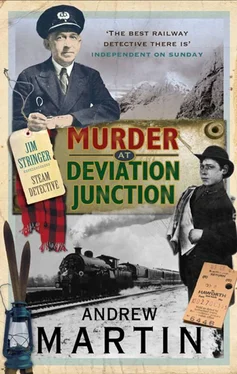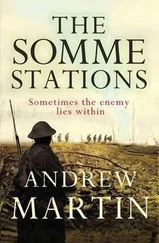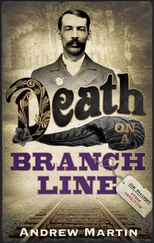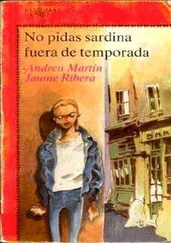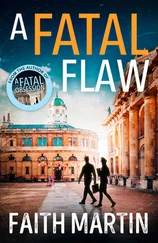'Let's have this right,' said Crawford, looking up from the smoking fire. 'You're saying that I never have the chance to drink tea on account of the large quantity of tea that I drink?'
'Yes,' said Baker. 'That puts it very nicely. But in my view the tea ought to be paid for out of the swear box.'
The two constables looked at Wright, who kept the swear box on his desk.
He was shaking his head, saying, 'I got the swear box up for the superannuation fund.'
Shillito looked up from his writing.
'Will you lot quit blathering and get down to some police work? Crawford,' he continued, pointing, 'fettle that fire instead of gawping at it.'
I knew that he was about to start in on me next, but he only eyed me for a moment, then rose smartly to his feet and stepped out of the door. Here was my chance to telephone Bowman. But no, there was a telegram form in Shillito's hand, which meant he'd only be gone for a moment. When Shillito wanted his business kept secret, he'd go out into the station, and give the form directly to the telegraph boy.
'What do you think, Jim?' said Crawford, who was now halfheartedly poking the fire in accordance with Shillito's instructions.
'Eh?' I said.
'Do you think the swear box should pay for the tea? Speaking as a regular contributor to the swear box—'
'—or a regular swearer, at any rate,' put in Baker.
But just at that moment Shillito returned, killing all amiability with his habitual order:
'Your notebook, Detective Stringer.'
The office fell silent as I picked it up from my desk, and passed it to him.
'I went to the Cape,' I said, 'but I did not arrest Clegg.'
My heart was galloping as I spoke, but I tried not to let him see it. This was the first time that I had crossed him in any serious way. He said nothing to my answer, making a show of reading the book for a space; but I could see the colour rising in his face.
He initialled the book and handed it back to me.
'I have sent you twice to bring in this man, and twice you have failed to do it, and for no good reason. Your book is once again full of this business of the - Club.'
I reached over to my desk, and handed him the photograph.
'This is the picture described in the book. It shows the Travelling Club. It was taken by Peters, who was murdered. I know for a fact that one of these men in the pictures has also been killed and another more than likely. One of 'em's Lee, who was done in the Lame Horse Murder - you might remember that. Burglary gone wrong. But everything points to all the blokes having met a very sorry end.'
Shillito had a dead look in his eyes; he was staring hard at the top button of my suit coat.
'I am placing you on report, Detective Stringer. I will speak to Chief Inspector Weatherill later today, with the recommendation that your application for promotion should proceed no further.'
'But the interview with Captain Fairclough is all arranged,' I said.
'One stroke of the pen will fix that,' said Shillito.
Suddenly, the end of my time in the police force came into clear view. I would not continue in any event if I did not achieve the promotion on Christmas Eve. Shillito spoke on. I hardly listened, but I saw in imagination the Gateshead Infant crossing the high level into Middlesbrough station, and the picture of it somehow reassured me. I was a railwayman through and through, where Shillito was not, even though he got his living from the railways. He hardly ever gave a glance to the traffic notices that were pinned up in the police office, and were meant to keep us in touch with the world out there on the lines. The Iron Roads held no romance for Ernest Shillito, and it was wrong that he should prosper in the North Eastern, and therefore he would not. I would win out over thin double-gutted bastard in the end, whatever setbacks there might be on the way.
Shillito was now mentioning a name that was for an instant unfamiliar: Williams. He held a telegram in his hand. Detective Sergeant Williams had been in communication - letter sent express overnight, written in haste - forgive scribble, but Williams most unsettled as a consequence of his interview with Detective Stringer. Stringer, it appeared, had a bee in his bonnet about a case long since solved and closed: the murder of George Lee. A very vicious individual of proven bad character, Sanderson, had been hanged for this, a point seemingly not taken by Stringer, who had appeared, all in all, a rather curious sort of fellow, if one detective sergeant might so put it to another ...
Williams, then, was a bigger bastard even than Shillito, for he presented himself as something else. Face to face, you'd take him for the whitest bloke that ever stepped, with his kindly manner and 'Do take the documents away with you, if you'd rather'.
'You are to return the files you took from the Middlesbrough office by the next post,' Shillito was saying, 'and then you are to go back to your normal duties.'
'What about the photograph?' I said.
But Shillito had gone back to his work.
I stood before his desk with my arms folded, photograph in hand, feeling like an ass. Shillito looked up at me, saying, 'I've done with you for the present, Stringer.'
I said, 'Do you want me to go back for Clegg?'
At this he gave a mock laugh, and set down his pencil.
He leant back in his chair and looked at me.
'Now that beats all,' he said. 'Do you honestly think I'm going to send you back so you can sup another few pints with your pal Clegg? Why, you'll be turning out for his blinking football team next.'
Nobody would be arresting Clegg, for Shillito had now realised that he would be in bother if the matter went any further.
I walked back to my desk, where I collected up the papers on Lee and Falconer, preparatory to posting them back to Middlesbrough.
'That photograph of yours,' Shillito called across. 'What does it signify? You might have a picture of any lot of men - the Institute Billiard Club for the matter of that - and if you came to look at it again a year on you might see that some of them had come a cropper. It's called damned bad luck, Stringer.' He said this last with impressive force, as if he really knew something of damned bad luck - and perhaps he did. After all, he'd missed his way in life, as I'd missed mine. My goal had been the footplate, his playing football as a professional.
I could not prove the importance of the photograph, and I had staked my future on inadequate data. Well, that was too bad. As Shillito got his head down again, for another hour of loud breathing and effortful writing, I got out my own pen, and composed, not a flash report, but a letter to a good fellow called John Ellerton. He was the shed superintendent for the Lancashire and Yorkshire Railway at Sowerby Bridge where, four years ago, I had driven a locomotive through a wall after a day of firing that engine in the company of an old boy called Terry Kendall.
Kendall, my driver and therefore my governor, had asked me to stable the engine at the end of the turn. It had been quite in order for him to do so, but he had also told me that the engine brake had been warmed, which it had not. As a result, the steam by which it worked condensed in its tubes instead of putting the brakes to the wheels.
It ought by rights to have been Kendall who was jacked in and not me. I had always known this, but had held off saying it. I would not say it now either, but it was the conclusion that I hoped would be drawn from my letter. In any case, Father Kendall, as he had been known, would be out of consideration by now, superannuated long since.
My letter began: 'My dear John, You will be surprised to read my name after such a long time . . .' and went on to ask whether he might see his way clear, if he could do so without entrenching on his own convenience (which expression was used, as far as I could see, by all police letters of a non-threatening nature), to inquire as to the possibility of my appealing against the decision to dismiss me, which I had always felt was unjust, and which over time might have come to seem so within the motive power office. With Shillito labouring away at his letters before me, I went on to say that my heart was not in railway police work, and that my experience in the force had only confirmed my decided inclination for the life of the footplate.
Читать дальше
